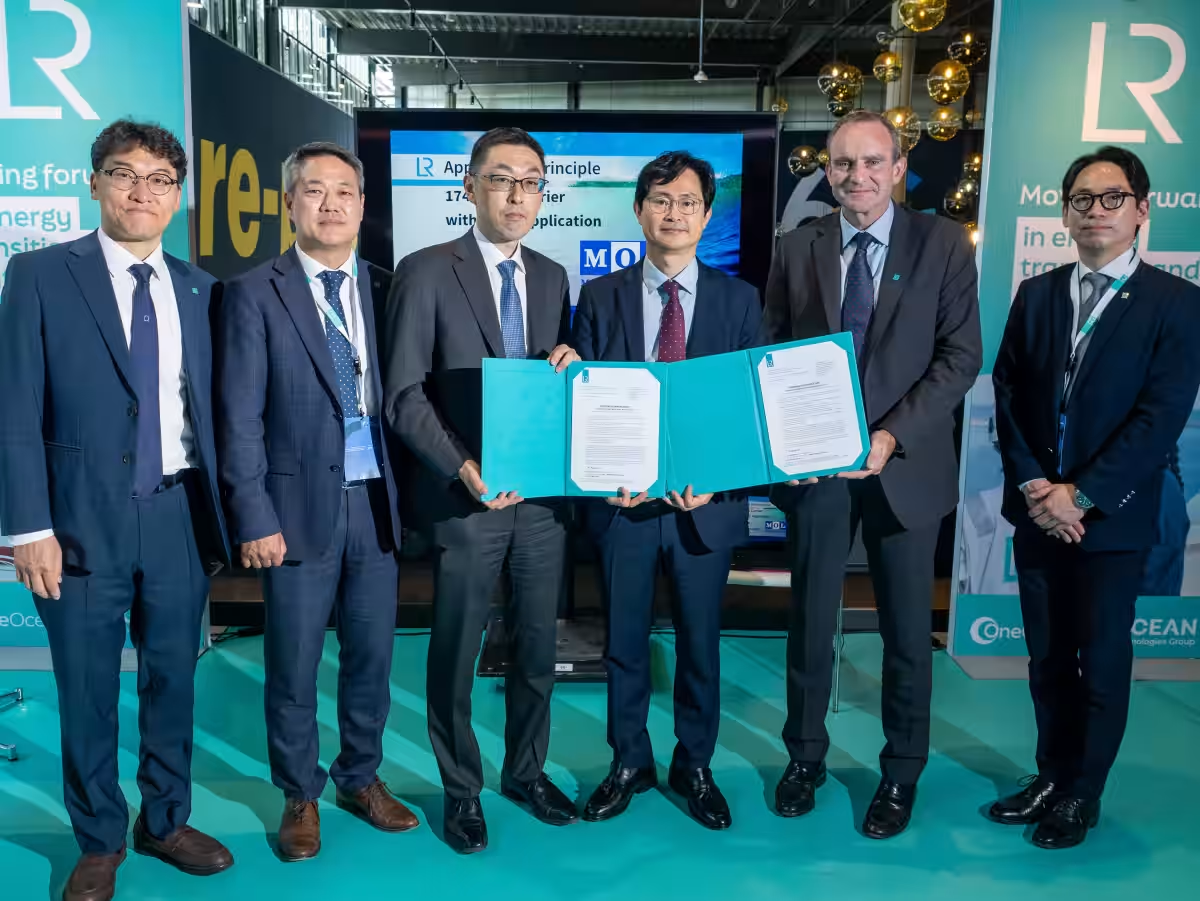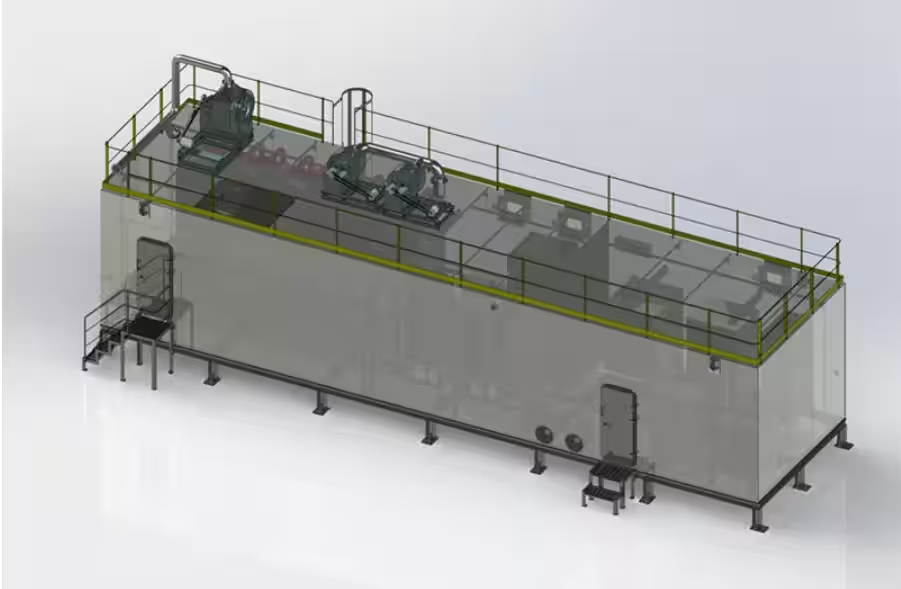

MOL and Samsung Heavy Industries Team Up for LNG Carrier with SOFC Technology
Mitsui O.S.K. Lines (MOL), led by President Takeshi Hashimoto, and Samsung Heavy Industries (SHI), under President and CEO Jin-Taek Jung, have made major strides towards sustainability in shipping. They recently collaborated to secure Approval in Principle (AiP) from the Lloyd's Register for an LNG carrier equipped with solid oxide fuel cells (SOFC). This innovative ship, expected to be completed in 2027, will boast a cargo hold capacity of 174,000 cubic meters and include a 300 kW SOFC unit manufactured by Bloom Energy alongside traditional generators.
The introduction of SOFC technology to marine vessels is quite rare, making this project particularly significant. SOFCs are unique in that they convert fuels like natural gas, hydrogen, methanol, and ammonia directly into electricity and heat with high efficiency, eliminating the combustion step typically found in power generation. This efficiency leads to reduced fuel consumption and decreased greenhouse gas (GHG) emissions.
Furthermore, SOFCs significantly lower the emissions of nitrogen oxides (NOx) and sulfur oxides (SOx), which are major pollutants in the shipping industry. The minimization of methane slip is another benefit, enhancing the environmental profile of this technology in maritime applications. Since discussions began in 2022 between MOL and SHI to integrate SOFCs into LNG carriers, both companies have worked diligently, along with Lloyd's Register, SHI, and Bloom Energy, to assess hazards (HAZID) and operational risks (HAZOP) associated with this cutting-edge technology to ultimately achieve AiP.
The award ceremony for the AiP was held on June 3, 2025, during the prestigious NorShipping 2025 international maritime exhibition. This partnership signifies a major step towards MOL's commitment to achieve net-zero emissions across its entire fleet by 2050, as outlined in the MOL Group's Environmental Vision 2.2. By focusing on cleaner and more efficient transport solutions, MOL aims to contribute significantly to the realization of a sustainable society.
In summation, the collaboration between MOL and SHI marks a pivotal moment in maritime innovation. With the integration of SOFC technology, LNG carriers are not only set to improve their operational efficiency but also to play a crucial role in reducing environmental impacts within the shipping industry. As both companies continue their journey towards sustainable development, the future of maritime transport looks promising, heralding a new era of environmentally responsible shipping practices.


The introduction of SOFC technology to marine vessels is quite rare, making this project particularly significant. SOFCs are unique in that they convert fuels like natural gas, hydrogen, methanol, and ammonia directly into electricity and heat with high efficiency, eliminating the combustion step typically found in power generation. This efficiency leads to reduced fuel consumption and decreased greenhouse gas (GHG) emissions.
Furthermore, SOFCs significantly lower the emissions of nitrogen oxides (NOx) and sulfur oxides (SOx), which are major pollutants in the shipping industry. The minimization of methane slip is another benefit, enhancing the environmental profile of this technology in maritime applications. Since discussions began in 2022 between MOL and SHI to integrate SOFCs into LNG carriers, both companies have worked diligently, along with Lloyd's Register, SHI, and Bloom Energy, to assess hazards (HAZID) and operational risks (HAZOP) associated with this cutting-edge technology to ultimately achieve AiP.
The award ceremony for the AiP was held on June 3, 2025, during the prestigious NorShipping 2025 international maritime exhibition. This partnership signifies a major step towards MOL's commitment to achieve net-zero emissions across its entire fleet by 2050, as outlined in the MOL Group's Environmental Vision 2.2. By focusing on cleaner and more efficient transport solutions, MOL aims to contribute significantly to the realization of a sustainable society.
In summation, the collaboration between MOL and SHI marks a pivotal moment in maritime innovation. With the integration of SOFC technology, LNG carriers are not only set to improve their operational efficiency but also to play a crucial role in reducing environmental impacts within the shipping industry. As both companies continue their journey towards sustainable development, the future of maritime transport looks promising, heralding a new era of environmentally responsible shipping practices.


Topics Environment)










【About Using Articles】
You can freely use the title and article content by linking to the page where the article is posted.
※ Images cannot be used.
【About Links】
Links are free to use.